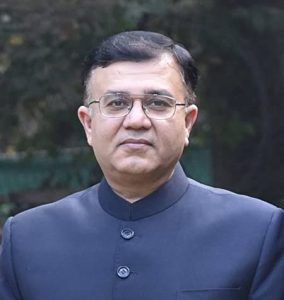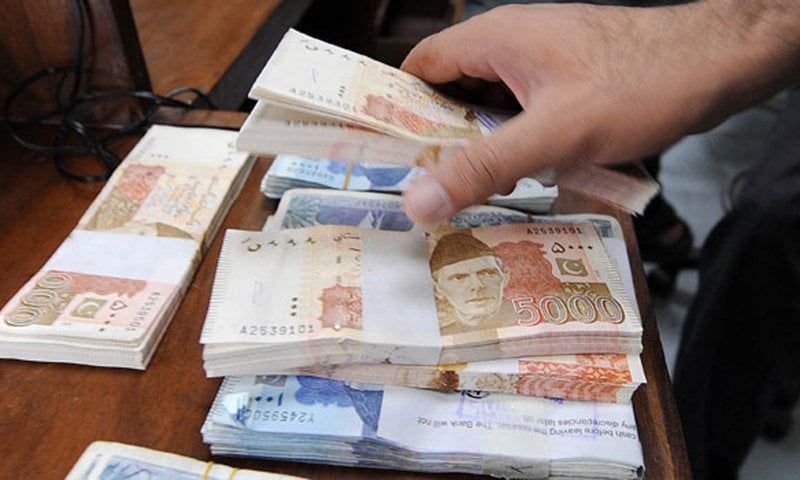The Cabinet Division revealed on Wednesday that their initiative to cut down on government spending by eliminating certain positions is expected to save around Rs36 billion each year. Interestingly, a significant portion of these savings, about one-fifth, comes from reducing the lowest pay grade-1 roles, which include gardeners, sweepers, and peons.
Dr. Kamran Ali Afzal, the Secretary of the Cabinet, acknowledged that the recent expansion of the cabinet somewhat undermined the symbolic effort to cut costs, but he noted that the actual financial impact was quite small. Meanwhile, Secretary of Finance Imdad Ullah Bosal reflected on the quality of Pakistan’s finance ministers over the last twenty years and how their decisions have shaped the economy.

The Cabinet Division updated the committee on the government’s right-sizing initiative. The Secretary Cabinet shared that Prime Minister Shehbaz Sharif had directed a reduction in the size of the federal government to enhance efficiency and focus on essential duties. He also mentioned that institutional reforms were being implemented as part of this initiative.
The joint secretary cabinet has laid out the details regarding the abolishment and classification of 39,896 positions in the public sector as either abolished or deemed dying. Among these, 11,558 positions, which fall under Pakistan’s lowest pay scale 1, are being affected. This accounts for 29% of the total positions being eliminated. The average salary for those in pay scale one is Rs42,888, and this scale typically includes roles like peons, gardeners, and sweepers.
The committee revealed that getting rid of these nearly 40,000 positions would lead to an annual savings of Rs36.3 billion. However, it’s worth noting that 19% of that, or Rs7 billion, comes from the lowest pay scale 1.
In contrast, only two positions from the highest pay scale of 22, which has an average monthly salary of Rs769,319, have been cut. The committee noted that eliminating these two grade-22 positions would save Rs20.8 million annually, which is just 0.05% of the total savings.

The government made the decision to eliminate these positions back in August of last year, with updates provided until February 18th. Due to political factors, successive governments have been hiring individuals primarily for these lower pay scales, leading to an inflated workforce and placing an unnecessary strain on the national budget.
The government has only done away with two positions at grade 21, which is the second highest level, saving an additional Rs18 million. Meanwhile, in scale 2, the second lowest pay scale, around 3,400 positions have been cut, leading to savings of Rs2 billion.
Overall, a total of 38,692 positions from grades 1 to 16 have been eliminated, which will save Rs31 billion, accounting for 86% of the total savings.
Senator Sherry Rehman from the PPP has raised concerns about the government’s reform strategy. Just last month, Prime Minister Shehbaz Sharif more than doubled the size of his cabinet.
“On one hand, the government talks about cutting costs, yet on the other, it has doubled the size of the federal cabinet,” she pointed out. She also noted that the logic behind devolution has been undermined by this cabinet expansion.
Secretary of the Cabinet, Kamran Ali Afzal, acknowledged that while appointing a new minister leads to a slight increase in operational costs, there is a symbolic impact that cannot be ignored.
He mentioned that bringing in new ministers is expected to boost the overall performance of ministries, aligning with the broader goal of institutional reform. He explained that one minister was overseeing multiple departments, which was hampering efficiency and necessitated an expansion.
“The main aim is for the federal government to concentrate on its core functions while delegating additional responsibilities to the provinces,” the Secretary of the Cabinet Division clarified.
Committee members expressed their disapproval of keeping ministries like health and education, which fall under provincial jurisdiction according to the constitution. However, the right-sizing committee has suggested shutting down several departments within these ministries.
Senator Mohsin Aziz commented on the caliber of federal secretaries leading various technical ministries.
There seems to be a misunderstanding about specialization. In universities and hospitals, the specialized heads have caused quite a bit of chaos, said Secretary of Finance Imdad Ullah Bosal, a senior member of the Pakistan Administrative Service.
“There have been quite a few technical finance ministers over the last 25 years, and just look at the state of the economy,” Bosal commented, expressing his disagreement with the notion of appointing specialized individuals to lead the Divisions.
For more than two decades, the roles of finance ministers have largely been filled by bankers, chartered accountants, and economists. Notable figures include Shaukat Aziz, Ishaq Dar (who has served three times), Shaukat Tarin (twice), Miftah Ismail, Asad Umar, Syed Naveed Qamar, Saleem Mandviwalla, and the current minister, Muhammad Aurangzeb. It’s worth noting that Naveed Qamar, Asad Umar, Miftah Ismail, and Mandviwalla held the finance minister position for relatively short stints.
The committee has decided to take a closer look at the right-sizing of the ministries, examining each department in detail, and plans to continue this discussion in the next meeting.
For the latest updates and insights on new developments, visit the NEWSON
Q1. What positions are being eliminated to save Rs36 billion?
The government is cutting nearly 40,000 positions, with significant savings coming from low pay scale roles like gardeners, sweepers, and peons. This will save approximately Rs36 billion annually.
Q2. How much of the Rs36 billion savings come from low-level positions?
Around Rs7 billion, or 19% of the total savings, will come from abolishing positions in the lowest pay scale (pay scale 1), which includes roles like gardeners, sweepers, and peons.
Q3. What is the impact of cutting nearly 40,000 government positions?
While most of these positions were already unfilled, the cuts will save Rs36 billion annually. The decision also helps right-size the government, reducing unnecessary budget strain.
Q4. What does the Cabinet say about expanding the size of the federal cabinet? Secretary Kamran Ali Afzal acknowledged the symbolic contradiction of expanding the cabinet while cutting costs but emphasized the need for effective government performance and institutional reforms.
Q5. How does the government plan to improve efficiency?
The government aims to enhance efficiency by eliminating unnecessary positions and focusing on core functions. The right-sizing initiative is part of broader institutional reforms under Prime Minister Shehbaz Sharif’s direction.
Q6. What concerns were raised about the government’s cost-cutting efforts? Senator Sherry Rehman criticized the expansion of the cabinet, noting the contradiction between cost-cutting measures and increased government appointments. The committee is closely reviewing the impact of these changes.


